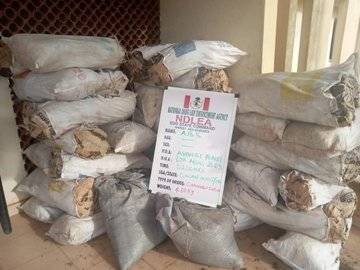The National Drug Law Enforcement Agency (NDLEA) has sounded the alarm on a staggering 14.3 million Nigerians caught in the grip of drug abuse, with a concerning rise in female involvement. The predominant substance of choice, cannabis, is particularly rampant in the Southwest region, painting a grim picture of the nation’s struggle with psychoactive substances. This surge in drug abuse not only poses a threat to public health but also jeopardizes traditional gender roles, raising questions about the future quality of caregiving and mentorship in Nigerian families.
Nigeria’s Evolution from Transit Country to Drug Producer
Once merely a transit country for drug trafficking, Nigeria has evolved into a significant consumer and even producer of illicit substances. The transition from cannabis and alcohol to more potent drugs like heroin and cocaine is alarming, but the latest cause for concern is the emergence of homemade narcotics such as Methamphetamine. This highly addictive substance, coupled with the innovative ways young people are discovering to get high, has added layers of complexity to the nation’s drug abuse crisis. The abuse of household items, from methylated spirit to glue, further exacerbates the issue, highlighting the need for comprehensive intervention strategies.

Drug Abuse: Impact on Youth and Societal Consequences
The adverse effects of abusing drug are most pronounced among Nigeria’s youth, leading to physical and psychological dependence that often results in school dropout and the potential emergence of future criminals and illiterates. Beyond individual consequences, abusing drug contributes to the escalation of social unrest, with criminalities, insurgencies, and terrorism frequently linked to substance-induced behavior. Furthermore, the prevalence of HIV/AIDS in Nigerian society is exacerbated by the consequences of substance abuse, painting a dire picture of the collateral damage inflicted by the nation’s drug crisis.
In addressing this multifaceted issue, urgent and comprehensive measures are imperative to curb the rising tide of drug abuse and its far-reaching societal implications.
Unraveling the Nexus: Understanding Youth Abusing Drug in Nigeria
The Intricate Dance of Peer Influence
In a groundbreaking study encompassing 18 published literature sources, the pervasive issue of drug abuse in Nigeria has been dissected, revealing a tangled web of influences on the country’s youth. Peer influence emerges as a dominant factor, driven by societal dynamics, the lack of positive role models, and the rise of youth subcultures. These revelations prompt a closer look at the intricate relationship between peer pressure and the escalating drug crisis.

Inadequate Parental Care: A Silent Catalyst
Simultaneously, inadequate parental care has surfaced as a silent catalyst propelling the drug abuse crisis. Communication breakdowns, parental absence due to economic challenges, and societal stigma contribute to an environment ripe for experimentation. Socioeconomic factors, such as poverty, further exacerbate the problem. This section delves into the profound impact of inadequate parental care on the vulnerability of Nigerian youth to drug abuse.
Unveiling the Ripple Effect: Consequences of Drug Abuse
As drug experts warn of potential cancer and terminal diseases linked to drug production regions, it becomes imperative to understand the far-reaching consequences of drug abuse. From health deterioration and addiction to impaired cognitive function and increased crime rates, the negative effects extend beyond individuals to impact families, healthcare systems, educational standards, and the economy. This section comprehensively breaks down the multifaceted repercussions of drug abuse in Nigeria.
To counter the escalating spate of drug abuse, a multifaceted approach is proposed. Widespread public awareness campaigns, integrated substance abuse education in schools, and targeted workshops for parents and community leaders aim to dismantle the roots of drug abuse.














